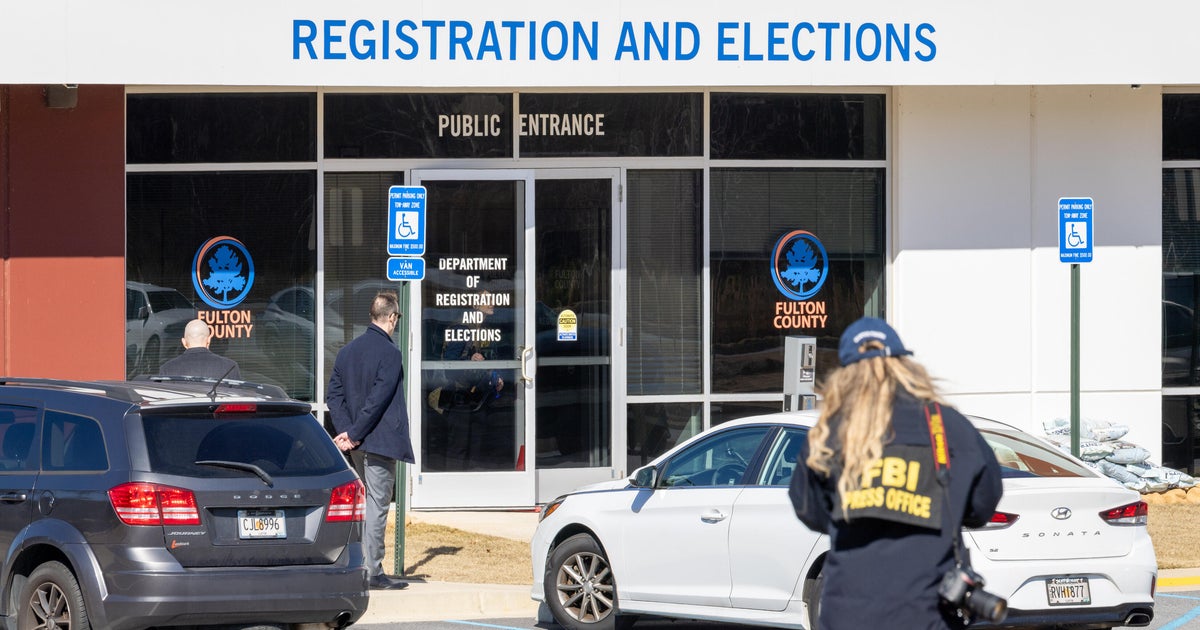The voters who turned out for Raphael Warnock and Jon Ossoff in Georgia
Georgia's two Democratic Senate candidates were propelled to victory by strong support from voters of color, large turnout in Democratic areas and substantial early voting. The victories will handed Democrats control of the Senate for the first time since 2014.
Jon Ossoff and Raphael Warnock's projected historic wins come on the heels of President-elect Joe Biden's victory in Georgia in November. Democrats have recently been making gains in the state that was reliably Republicans for many years. The trio of victories demonstrates that Georgia is turf where Democrats can not only compete, but can win.
Mr. Biden was the first Democrat to win a presidential race in Georgia since 1992, and now, Ossoff and Warnock will be Georgia's first Democrats elected to the Senate since 2005. Their wins come after Democratic gubernatorial candidate Stacey Abrams lost to Republican Governor Brian Kemp by just 1.4 points in 2018.
About 4.5 million Georgians cast ballots during the runoff elections — more than double the previous record for runoff turnout in the state. Runoffs normally see a significant drop-off in turnout from the previous general election, but these high-profile Senate races that determined who would control the chamber had close to 90% of November's turnout, according to a CBS News analysis.
The Democratic victories were partly fueled by strong turnout in the Atlanta metro area and predominantly Black counties. For example, turnout surpassed 96% of presidential turnout in Clayton County, south of Atlanta, as well as in Randolph and Calhoun in rural southwest Georgia. Exit polling showed that over nine in 10 Black voters supported the two Democrats — a slightly greater than Mr. Biden's margin among this group.
In metro Atlanta — a critical area for the Democrats — Cobb, DeKalb, Douglas, and Fulton counties all hit at least 90% of their November turnout.
Republicans suffered from relatively lower participation in mostly White, rural counties in north and southeast Georgia that are home to many voters in the Republican base. Several of these counties saw turnout levels that were 80-85% of presidential levels. While these numbers are impressive for a runoff, they did not match the even larger rates in more Democratic counties.
Leading up to Election Day, turnout in some Republican congressional districts lagged more solidly Democratic areas. In an effort to galvanize Republicans, President Trump visited conservative northwest Georgia for a rally on the eve of the election. He spent much of the rally focused on baseless claims of fraud in the general election, while making a few references to Senators Kelly Loeffler and David Perdue.
One of the big questions about the races was the impact of Election Day turnout. More than 1.3 million people voted on January 5, which substantially exceeded the total number of presidential votes cast on November 3. Republicans needed a big boost from their voters on Election Day, but many Democrats also showed up to vote on Tuesday. That may have partly been due to less early voting time because of holidays.
Grassroots organizers touted massive get out the vote efforts and engaging communities of color as keys for Democratic victory. "Georgia is a battleground state thanks to the relentless work done toward investing in and turning out voters of color," Nsé Ufot, CEO of the New Georgia Project said in a statement.
Representative Nikema Williams, chairwoman of the Georgia Democratic Party, said in a statement the "victory has been a long time coming, and is thanks to the tireless efforts of organizers, volunteers, campaign staff, and the grassroots movement who have believed in the power of Georgia voters for far longer than one or two election cycles."
The early voting period was critical for the Democrats. More than 3 million people cast ballots ahead of Election Day either in-person or with an absentee mail ballot, making up about seven in 10 eventual runoff voters. Democrats outpaced Republicans in the early voting period, and Black voter turnout in particular was up about three points from the early period in November.
More than 120,000 people who didn't vote in the general election voted in the runoffs during the early voting period, helping Democrats pile up votes ahead of Election Day. While it was a small chunk of the electorate, accounting for 4% of the early vote, every vote is critical in tight races. Six in 10 of these new early voters were under 40, and four in 10 were Black — groups that were favorable to Ossoff and Warnock.
There were also likely many new voters who voted on Election Day, though there won't be a full picture of them until vote history data is made available. Denice Harrison is one such voter who did not vote in the general but cast a ballot in the runoffs on Tuesday in Atlanta.
"I said, 'You know what? My voice matters, I've got to go out here and vote,'" said Harrison, who voted for the Democrats. "This was my second chance to make it right."
While both of the Democrats are projected to win, Warnock is on pace to win his race by a slightly wider margin. Warnock ran ahead of Ossoff in many of Georgia's 159 counties. His strongest performance was in Fulton County, home to Atlanta, and some of the surrounding suburban counties. An analysis by Charles Stewart of MIT showed Warnock over-performed Ossoff by relatively more in Democratic precincts and in precincts with more White voters, suggesting that straight-ticket Democratic voting was less common among White voters than among Black voters.
Mr. Biden's narrow 11,779 vote victory in November meant Democrats were going to need to reasonably keep pace with his margins in order to compete. In November, Ossoff underperformed Biden, which raised questions about how the Democrats would fare in the runoffs. Warnock, for his part, out-performed Biden's margins in the vast majority of Georgia's counties.



